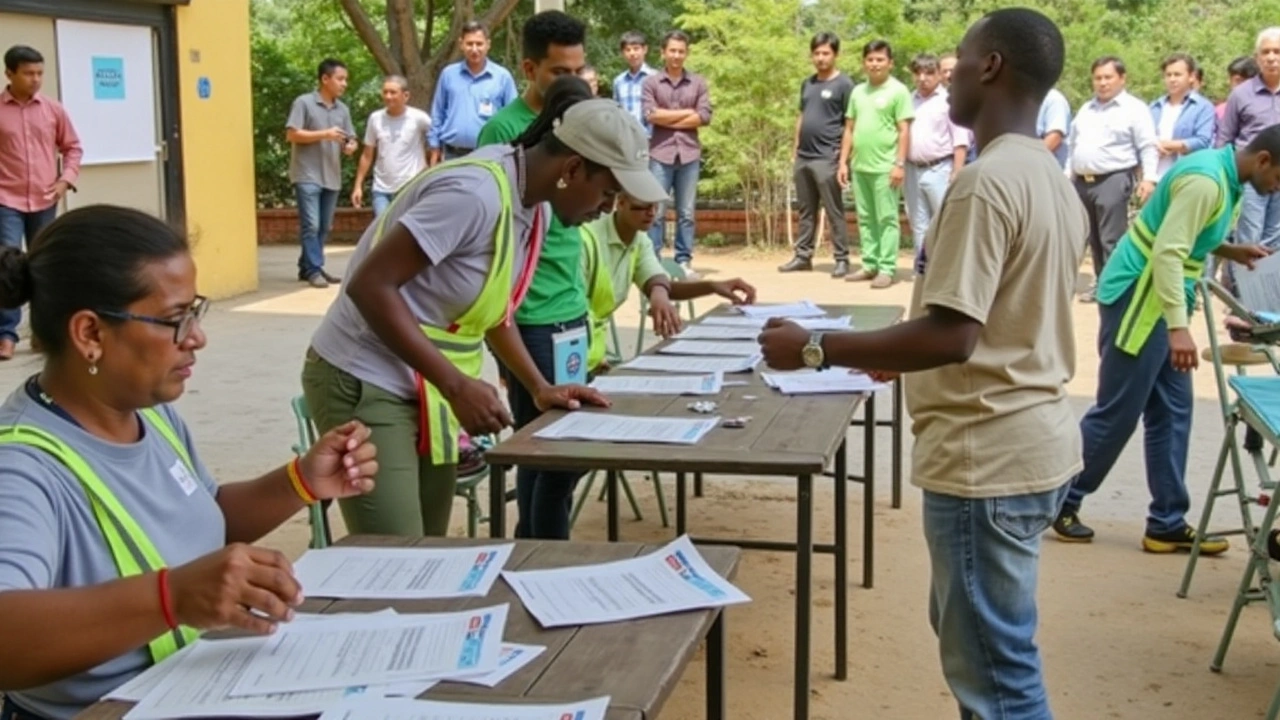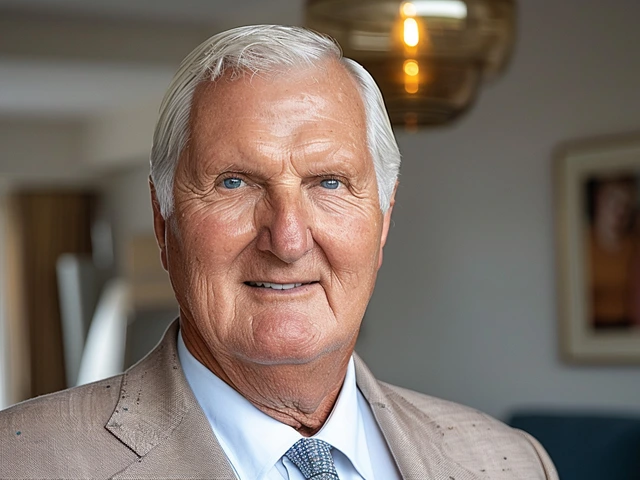The Disappointing Turnout at Edo's 2024 Governorship Election
The 2024 Edo governorship election, which transpired recently, has been marked by a shadow of disappointment and disillusionment. Voters and observers alike have dubbed it the election with the poorest turnout they have ever seen. Low voter turnout across various polling units in the state conveyed a significant message about the citizens' current political mood.
Voter turnout is often viewed as a barometer of public engagement in the political process. In Edo State, this metric plummeted to an all-time low during this election, a stark contrast to previous elections. This beckons the question of what led to such a decline, where citizen participation is essential for legitimizing the electoral process.
Observations from the Ground
The scene at numerous polling units painted a bleak picture. Observers and voters reported a dishearteningly thin crowd, which they mentioned was unprecedented. Some polling stations remained almost deserted throughout the day. Comparing this to the enthusiasm and participation seen in past elections, one cannot help but ponder the factors contributing to this drastic change.
Observers, alongside everyday voters, share a consensus: the root of the problem lies in voter apathy and dissatisfaction. This disenchantment was evident as people chose to stay home rather than cast their votes. The election day, which should have been filled with bustling activity, signified a collective disengagement from the political machinery.
Understanding the Root Causes
Why did voters decide to abstain from the electoral process this time around? Many pointed to a growing disillusionment with the political candidates. Promises made in past elections have gone unmet, leaving a trail of skepticism. People no longer trust that their vote will lead to any tangible change. This trust deficit has eroded the bedrock of democratic participation.
Another reason cited by voters is the perceived inefficiency in the political process. Numerous citizens express frustration over long-standing systemic issues, corruption at various government levels, and a sense that their voices are drowned out in the larger political narrative.
The Role of INEC and the Impact of Voter Apathy
The Independent National Electoral Commission (INEC) made commendable efforts to ensure the smooth conduct of the election. However, even with all logistical elements in place, the turnout remained dismally low. Their attempts ranged from voter education campaigns to ensuring polling unit accessibility, yet these initiatives seemingly fell on apathetic ears.
This low turnout doesn't just signal immediate concerns but poses long-term implications as well. It raises critical questions about the legitimacy and representativeness of the election results. If a significant portion of the electorate abstains, the elected officials may not truly represent the will of the people.
Calls for a More Engaging Political Process
There is a growing consensus among observers and political analysts that the crux of the problem is the need for a more engaging and inclusive political process. The emphasis now is on rebuilding the bridge between politicians and the electorate. They advocate for initiatives that would restore faith in the political process and ensure that citizens feel their involvement is impactful.
Educational programs aimed at young voters, transparency in governance, and more robust civil participation channels are potential strategies. The goal is to foster a political climate where citizens are engaged and motivated to participate in elections actively.
The Way Forward
Looking ahead, Edo State faces a significant challenge. The low voter turnout at the 2024 governorship election should serve as a wake-up call. It's a poignant reminder of the disconnect between the government and the people. Rebuilding trust will be no easy feat, but it is essential for the health of the state's democracy.
Policymakers, political parties, and civil society organizations all have a role to play in this. Collaboratively, they need to address the root causes of voter apathy and reinstill a sense of civic duty and optimism in the electoral process. Only when citizens believe in the power of their vote will we see a shift towards higher voter participation.
The 2024 Edo election might be a disheartening chapter in the state's political history, but it also opens up a conversation full of potential for change and improvement. The key will be to listen to the voices of the disenfranchised and work earnestly towards a political system that is inclusive and participatory.






I've seen this pattern in other states too. It's not just about candidates-it's about systemic fatigue. People aren't lazy; they're exhausted. They've been told their vote matters for decades, but nothing changes. The same faces, same promises, same corruption. When you live in a system that treats you like a statistic, why show up?
The turnout was lower than a politician's promise.
Oh wow, people actually chose to stay home? Shocking. I thought they'd all be lining up to support the same old liars. Guess even apathy has standards now.
This isn't just an election failure-it's a moral collapse. We are watching democracy die in slow motion, and no one is even crying. The silence is louder than any rally. Children will read about this in textbooks and ask, 'Why did they let it happen?' And we'll have no answer. None.
The ballot is not a prayer. It's a contract. And when the state breaks its side of the contract-by ignoring, exploiting, and silencing-the people are not 'apathetic.' They're exercising their right to withhold consent. This isn't indifference. It's a silent revolution.
We need to stop treating this like a broken machine. It's not a logistics issue-it's a trust issue. People don't need more posters or more rallies. They need to see real change before they risk their time again. Start by firing the corrupt ones. Not the ones who lost. The ones who cheated.
Low turnout? 😂 Bro, the real election was in the backrooms. This was just the cosplay. 🤡 #VoteForTheCastingDirector
I'm not mad, I'm just disappointed. Like, I used to believe in this stuff. I used to think voting was the first step. Now? I just want to watch Netflix and pretend the world is okay. But I still check the news. Every. Single. Day. 😔
I think... we need to remember... that apathy isn't born overnight... it's built... over years... of broken promises... and ignored voices... and... silence... from those who could have spoken up... but didn't...
Let me guess-people stayed home because they're too lazy to walk 500 meters to a polling booth? Or maybe they're just too stupid to understand democracy? Oh wait, that's the same excuse they used in 2012, 2016, and 2020. Pathetic. The problem isn't voters. It's the fact that we keep electing the same toxic clowns and calling it 'democracy.'
There’s a real opportunity here. Instead of blaming voters, let’s ask: What if we treated them like partners? What if we showed them how their input directly affects budgets, schools, and roads? Not through speeches-through data. Transparent dashboards. Real-time updates. People respond to proof, not promises.
I think we forget how much emotional labor it takes to care about politics when you’re just trying to survive. Maybe the answer isn’t more rallies-it’s more dignity. More respect. More listening.
We need to start with youth. Not just voter registration drives-real civic education. Teach them how budgets are made. How laws are passed. How corruption is tracked. Make it relevant. Make it cool. If they see politics as a tool for change, not a circus, they’ll show up.
I didn’t vote. I haven’t voted in ten years. I don’t hate democracy. I just hate the performance. The same faces. The same scripts. The same hollow smiles. I’m not apathetic-I’m grieving. And grief doesn’t show up at polling stations.
It is imperative that institutional reforms be undertaken with the utmost urgency. The legitimacy of representative governance is contingent upon the active and informed participation of the citizenry. The precipitous decline in electoral participation constitutes a structural crisis requiring multidimensional intervention, including but not limited to civic pedagogy, institutional transparency, and the eradication of systemic disenfranchisement.